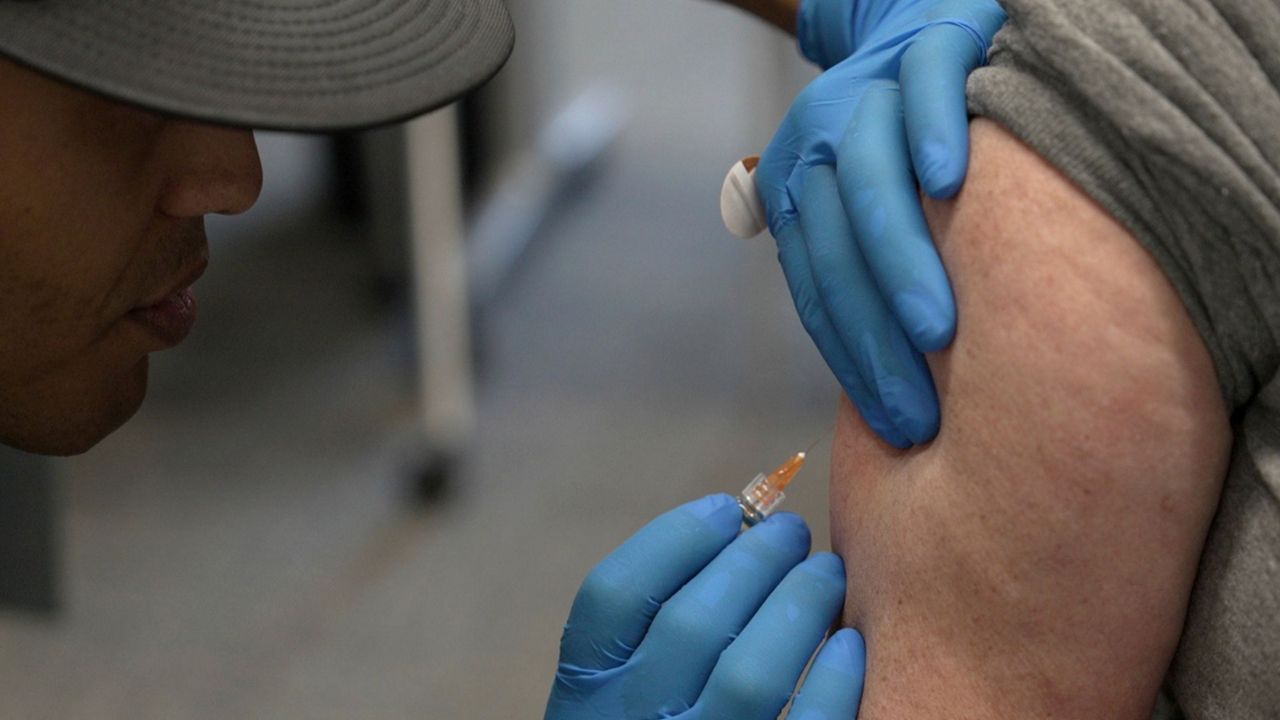DALLAS — Last week, when the United Nations secretary-general warned that Texas must end its reliance on oil and gas production if the state hoped to remain prosperous in the era of climate change, Gov. Greg Abbott shot back with a two-word response.
“Pound sand,” the Texas governor said in a tweet.
So, it’s no surprise that Abbott won't be in Scotland for the 26th Annual United Nations Climate Change Summit, which starts Oct. 31.
Abbott would be in good company if he were to change his mind and fly to Glasgow for the Conference of the Parties meeting, commonly referred to as COP26. In addition to dozens of heads of states who will be there, including President Joe Biden, U.S. governors of other large oil-and-gas producing states, such as neighboring Louisiana and New Mexico, will be there.
Louisiana Gov. John Edwards said in a statement this week that he heads to Glasgow for the summit on Oct. 28, where he and his delegation of advisers and members of his Climate Initiatives Task Force would “help shape the international discussion about climate change, cleaner energy, and creating sustainable communities in the face of a changing climate.”
Louisiana produces about 9% of the U.S.’ total natural gas output.
“Make no mistake: an industry-wide transition to cleaner, less environmentally impactful energy production and utilization is going to happen regardless of if Louisiana participates, so it’s best that Louisiana be a leader in this space,” the governor’s statement said.
Edwards announced last year that Louisiana had created a task force to examine steps the state would take to reduce its greenhouse gas emissions to net-zero by 2050. Edwards said he would ensure that world leaders gathered in Glasgow understood that Louisiana’s manufacturing workforce was “ready to make those products but with a greater reduced carbon footprint.”
In Texas, Abbott seemed to see things differently, although many argue that the Lone Star State, like Louisiana, is uniquely positioned to take advantage of the economic development opportunities that could come with the transition to cleaner energy.
“The world is reeling from spiraling fuel costs caused by premature over-reliance on renewable energy,” Abbott said in his tweet in response to U.N. Secretary-General Antonio Guterres' comments. “High fuel costs punish middle-class families and stoke the supply chain crisis. Texas oil and gas is needed right now.”
The stakes at the annual COP meetings are high every year, and this year seems to have even more of a sense of urgency given the latest data released this year. Reports show greenhouse gas emissions and global temperatures continue to rise, fueling unprecedented disasters seen around the globe already, such as the massive forest fires in Siberia, heatwaves in the Pacific Northwest, and devastating sea-level rise on the Gulf Coast this year.
Climate scientists have warned that a vast increase in the production of renewable energy and a transition away from fossil fuels will be required to reach the targets already agreed on as part of the Paris Agreement.
The Paris Agreement was signed by 197 countries in 2016 that committed to taking steps to keep the global average temperature from rising by 1.5 degrees Celsius above pre-industrial levels.
A U.N. report released in August showed that the global average temperature was already at 1.1 degrees C and, at the current rate, will exceed 1.5 degrees Celsius within two decades.
The U.S. was an original signer of the Paris Agreement but pulled out under former President Donald Trump. America reentered the agreement this year after Biden took office in January.
Some see Abbott’s absence from the COP26 as a missed opportunity for Texas.
Texas is the U.S.’ top crude oil and natural gas producer. In 2020, Texas accounted for 43% of the nation's crude oil production and 26% of its marketed natural gas production, according to the U.S. Energy Information Administration.
Texas is also a leader in renewable energy production, particularly wind power, producing about 28% of all the U.S. wind-powered electricity in 2020.
But the state is still the largest energy-producing and energy-consuming state in the nation, according to statistics from the U.S. Energy Information Administration. Texas’ industrial sector, including refineries and petrochemical plants, accounts for half of the energy consumed in the state, the energy information administration calculates.
Texas has made strides compared to other states in terms of opportunities for clean energy jobs, a major economic window of opportunity in discussions about transitioning from fossil fuels production and to renewable energy production, said Steve Cochran, an associate vice president for state affairs at Environmental Defense Fund Action.
“Texas is actually pretty well positioned, even though traditionally it might not seem that way, to take advantage of this drive toward clean energy, this need to transition away from dirty fuels,” he said.
Texas has an economic opportunity as well as the obvious environmental protection opportunity that comes from a successful COP summit, Cochran said.
Texas ranks second nationally for clean energy jobs with more than 223,406 positions already, according to EDF Action. The transition to clean energy could create 1.1 million more jobs in Texas over the next 25 years, which would be more than three times the state’s current employment in the oil and gas industry, the group predicts
Houston and Dallas are number one and two on a list of the country’s top 10 cities with clean energy jobs, Cochran said.
This year’s COP summit will revolve around the Paris Agreement nations’ discussion of how they will adhere to their commitments to reduce emissions, as well as how they will help finance the transition to cleaner fuels for poorer countries, reduce global use of coal, and reduce methane emissions, among other topics.
“Of course, commitments are one thing, and doing is another,” Cochran said. But this COP meeting will have a more serious, urgent tone, including from many multinational oil and gas companies, many of which have headquarters in Texas, he said. “They are getting serious about this. Most companies are no longer denying the reality between the relationship between what we put in the air and what our weather is.”
Right now, when Texas and other states witness a climate change-related disaster, “we are in a get hit and recover mode and that seems to be getting worse, not better,” he said.
While Cochran said that might sound apocalyptic, for those Texans living in Houston and during Hurricane Harvey or for those who live in south Louisiana and went through the last few years, “it's not apocalyptic, it's reality.”
Texas and Louisiana have a vested interest in trying to get a hold of the global problem of climate change because, in the end, it’s the populations at the local level feeling the impact, he said.








